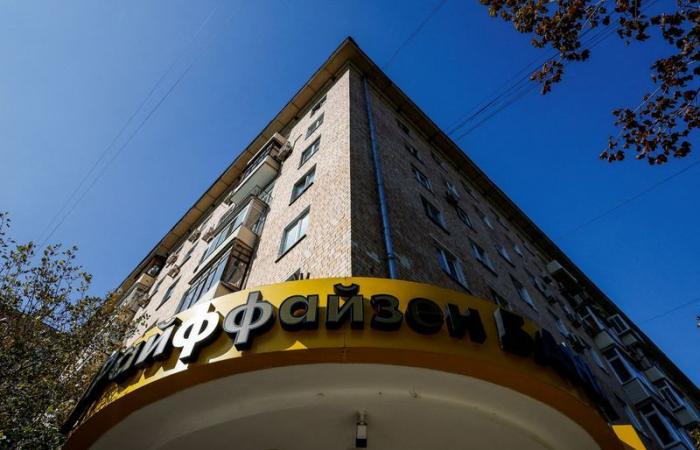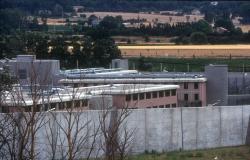A Russian court’s ordering Austrian bank Raiffeisen International to pay 2 billion euros ($2.1 billion) in damages over a failed deal shows Moscow’s determination to hit back at the West , with businesses bearing the brunt of the fallout.
Monday’s ruling, delivered in a courtroom where armed men wearing balaclavas sat among those implicated in the case, is a blow to the largest Western bank in Russia, which made billions in profits there during almost three years of conflict with Ukraine.
The move marks a turning point for the bank that has served as a payment gateway for Russia’s middle class and businesses to the West, forcing Raiffeisen to set aside a substantial amount for the loss, even as it seeks to challenge the decision.
The ruling, handed down as Donald Trump was sworn in as president of the United States, serves as a warning to others, and prompted accusations from Raiffeisen’s lawyer that the court was biased and that the masked men were there to intimidate.
Russian lawyers who filed the case against Raiffeisen said the men in the courtroom were bailiffs charged with maintaining order, accusing their opponents of “bombarding the court with unfounded motions.”
The sanction, handed down by a court in the Russian enclave of Kaliningrad, follows the failure of a deal involving Raiffeisen to free up a Russian stake in an Austrian manufacturer, which unraveled under pressure from Washington . Today, Raiffeisen must foot the bill.
“This is a final warning to all Western companies: you cannot do business with Putin’s Russia,” said Helmut Brandstaetter, a liberal Austrian lawmaker in the European Parliament.
This decision also coincides with a deterioration in relations between Russia and Austria, long close to Moscow but which has gradually loosened its ties, abandoning in recent weeks a multi-billion dollar agreement to purchase Russian gas.
“Raiffeisen was given sufficient notice to withdraw,” Brandstaetter said. “It also shows that any continued ties between Austria and Russia will lead to disaster.
INEVITABLE REPRISALS
This decision aggravates the concerns of Western companies still present in Russia, which include food companies such as PepsiCo, Procter & Gamble and Mondelez, as well as the Italian bank UniCredit.
Ian Massey, of risk management consultancy S-RM, said the move was part of “pressure tactics, including increasingly punitive exit conditions, asset seizures, and now… huge fines.”
“In the context of Russia’s growing diplomatic and economic isolation, retaliation against Western business symbols was almost inevitable.
With Monday’s decision, Russia makes good on its previous threats to attack private assets.
-Last May, Moscow said it would identify U.S. assets that could be used to offset losses related to the seizure of Russian assets frozen in the United States.
Moscow has already seized some assets and forced their sale to selected buyers, as was the case for the French yogurt maker Danone and the Danish brewer Carlsberg.
The Kremlin controls which companies are authorized to sell and demands a steep discount on the sale price.
Nearly three years after Russia sent troops to Ukraine, Raiffeisen’s continued presence in Russia underscores the enduring ties between Moscow and Vienna, the latter having served as a hub for cash from Russia and the former states Soviets.
This link put Raiffeisen and Austria at the forefront of the US-led global campaign to isolate Russia.
The legal dispute follows the failure of an agreement which, Raiffeisen hoped, would allow it to release part of its billions frozen in Russia.
The case centered on a complaint filed by the Russian investment company Rasperia against the manufacturer Strabag, its Austrian shareholders and the Russian branch of Raiffeisen.
Raiffeisen had sought to buy from Rasperia a stake in Vienna-based Strabag, which Strabag had linked to Russian tycoon Oleg Deripaska.
Washington identified Rasperia as part of a group of Russian companies still controlled by Deripaska, when he imposed sanctions on some of the parties involved, causing the deal to collapse.
A spokesman for Mr. Deripaska reiterated that he had no connection with the company at the heart of the dispute with Raiffeisen.
Raiffeisen has about 6 billion euros in Russia, from international payments and billions of euros in Russian deposits, a person familiar with the matter told Reuters.
(1 dollar = 0.9628 euros)






